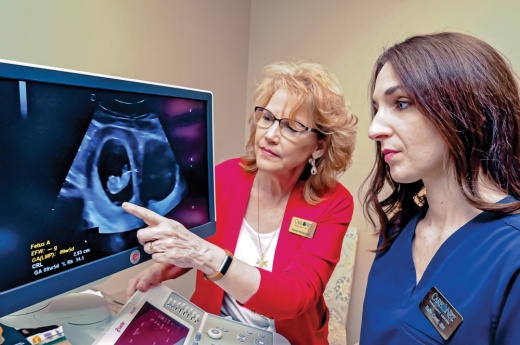The overview
The proposed rule does not list specific conditions that warrant an emergency abortion, instead deferring to physicians to use their “reasonable medical judgment” to determine when a pregnancy must be terminated. A medical emergency is defined as "a life-threatening physical condition aggravated by, caused by or arising from a pregnancy that, as certified by a physician, places the woman in danger of death or a serious risk of substantial impairment of a major bodily function unless an abortion is performed."
Pushing for clearer guidance, physicians said the proposed rule would do little to alleviate the “fear and misunderstanding” surrounding the abortion law.
“Put simply, we want the ability to use our reasonable medical judgment to apply the appropriate standard of care to save life and to allow for new life to be created,” said Dr. Joseph Valenti, a Denton OB-GYN and chair of the Texas Medical Association’s board of trustees. “Women's maternal health and fertility are dependent on the state getting this right so that physicians can save lives and help women have healthy pregnancies.”
The TMA, which does not often comment on abortion policy, also submitted a letter opposing the proposed guidance.
The board is expected to discuss the proposal again during its June 20-21 meeting, although it is unclear when the rule will be approved.
What you need to know
In Texas, abortion is prohibited in most cases after the state’s “trigger law” took effect in August 2022. Doctors can terminate a pregnancy to save a pregnant person’s life or prevent serious injury, but the law does not include exceptions for rape or incest.
Physicians who violate the abortion ban face strict criminal penalties, including life in prison, at least $100,000 in fines and the revocation of their medical license.
Twenty women sued the state last year, saying they were denied abortions despite experiencing severe pregnancy complications. Their case, Zurawski v. Texas, is pending before the Texas Supreme Court.
"I know this is an emotional issue,” board President Dr. Sherif Zaafran said. “And I know that there's some very strong feelings one way or the other. We as a medical board are trying, as best we can, to stay within the constraints of the law while helping give clarity to the physicians as to how they can navigate these issues when they do happen.”
Austin attorney and lobbyist Steve Bresnen said the medical board should clarify that “the death of the pregnant female or impairment of her major bodily functions need not be imminent” before a doctor can intervene.
In December, the Texas Supreme Court ruled that Dallas resident Kate Cox could not get an abortion in-state after her fetus was diagnosed with trisomy 18, a rare and typically fatal developmental condition. The court deferred to the medical board for guidance.
Cox said she later left Texas to receive an abortion.
“I spent evenings sick on the bathroom floor instead of having dinner with my family,” Cox said. “I spent nights in the [emergency room] instead of reading bedtime stories to my children. I lived in fear of my health while I waited until I was sick enough to get an abortion or for the inevitable and unavoidable loss of my baby. I was fighting to ensure that I would be healthy enough to be the mother my two small children need.”
Cox told the medical board their proposed rule would “create additional hurdles” for patients in similar situations.
More details
“It's important to note, as you consider this important issue, that Texas abortion laws are currently saving unborn babies and pregnant women's lives,” said Amy O’Donnell, the communications director for antiabortion organization Texas Alliance for Life.
According to data from the Texas Health and Human Services Commission, 80 abortions were performed between August 2022—when the “trigger law” took effect—and December 2023. All of these procedures were performed in hospitals, and no patients died. The HHSC has not yet released data for 2024.
O’Donnell said she also was not aware of any deaths caused by Texans being denied abortions.
Also of note
Valenti said he was concerned about the documentation and administrative requirements in the proposed rule “potentially hindering our Hippocratic oath, limiting the use of our reasonable medical judgment, and delaying much-needed life-saving and fertility-saving measures.”
The proposal includes seven things physicians must document when performing an abortion, including specific risks of death or major bodily function; what alternative treatments were attempted or ruled out; and if there was time to transfer the patient to another facility or physician to avoid performing an abortion.
“We don't want to have to go through that checklist to create a delay prior to doing what we must do,” Valenti said.
Zaafran said physicians could use their medical judgment in an emergency and record the details “after a patient has stabilized.” Valenti asked for clarification in the final rule, arguing the proposal “[implies] that's what would have to happen before we acted.”





